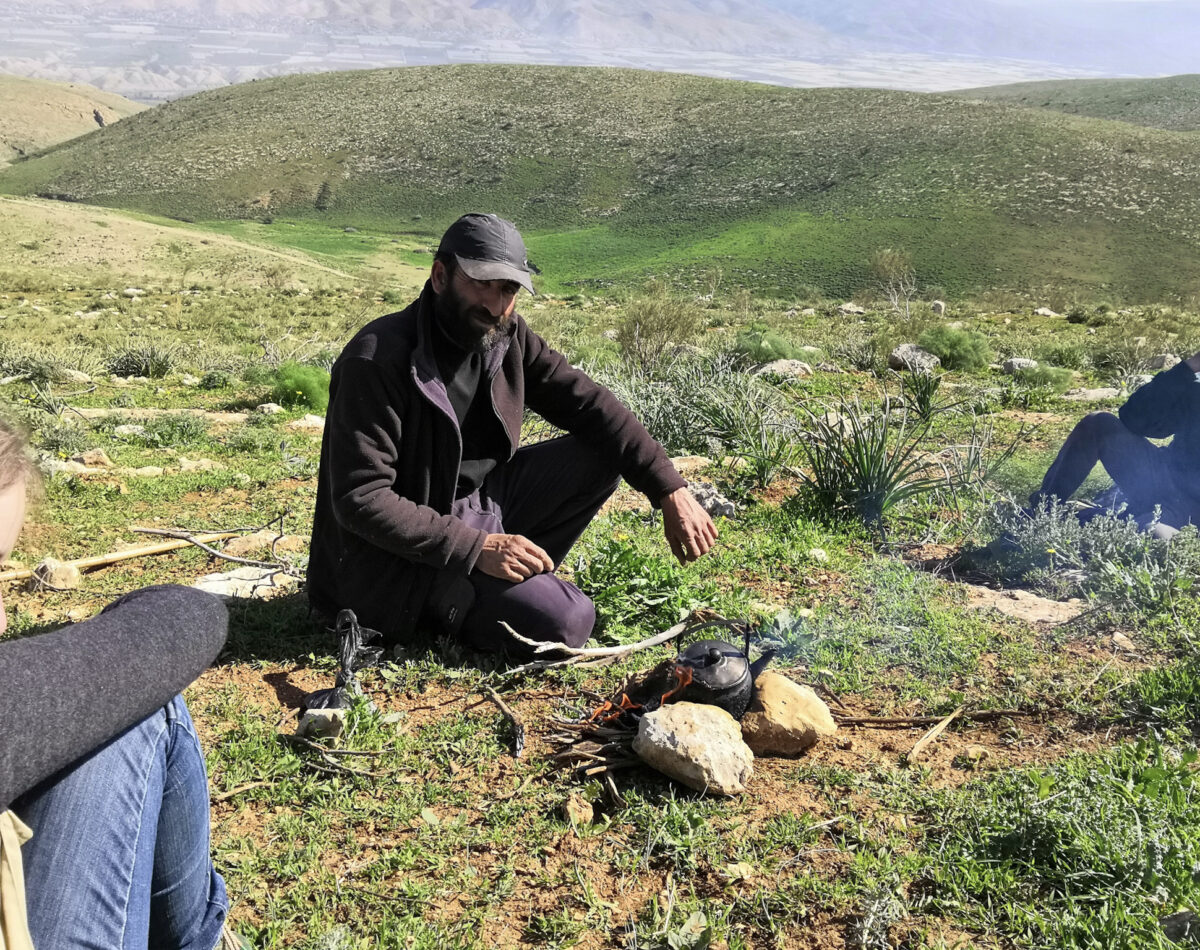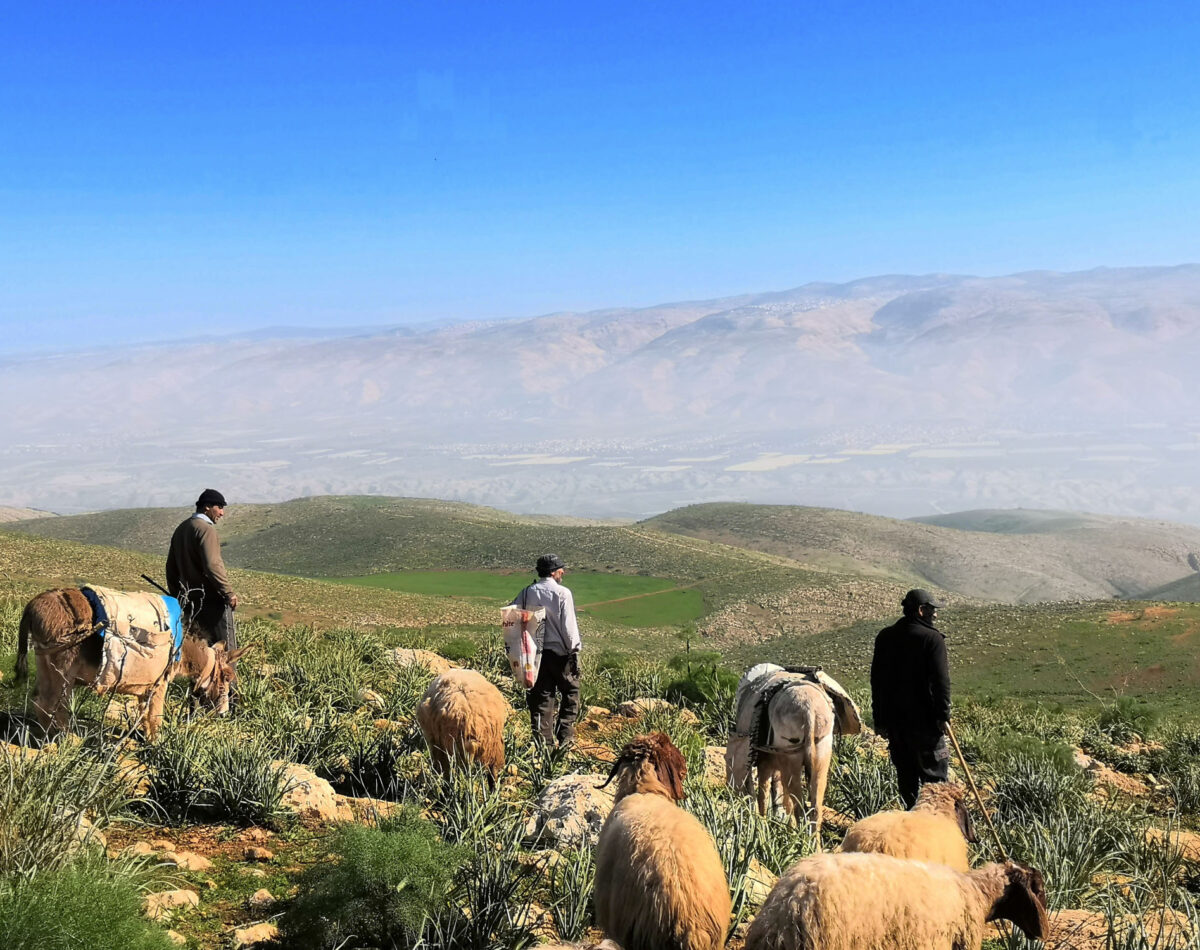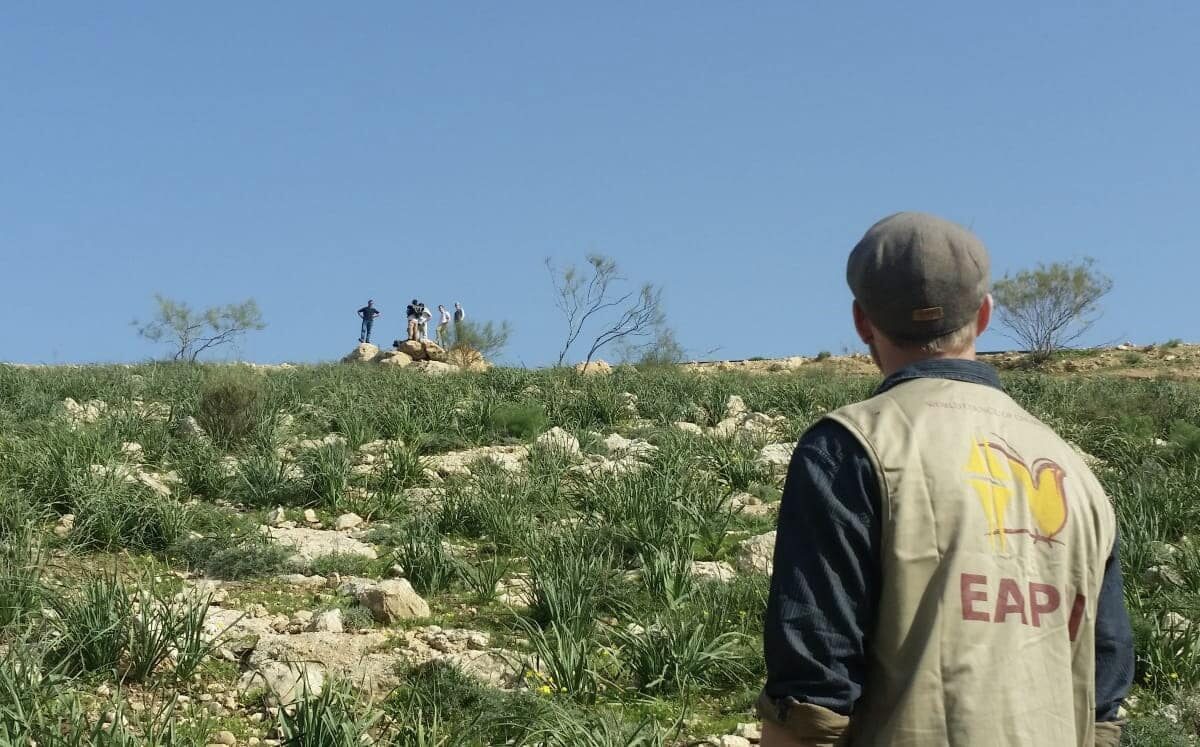‘Who are [they] to tell me where I can take my sheep? This land is mine. I have my Tabu paper [land ownership document from Ottoman times], where is his?’
Fawsi, Jordan Valley
We are in the shepherding community of Khirbet Samra listening to local shepherd Fawsi recount a recent encounter with a settler from the nearby settlement outpost. His story is familiar. Herding communities like this one have grazed their sheep and more recently, as their traditional migratory way of life became untenable, cultivated fields in the Jordan Valley for generations. They now face severe access limitations to their land; forcing many to pack up and move to nearby urban population centres such as Tubas.
Situated in the northern Jordan Valley on land designated Area C under the Oslo Accords, Khirbet Samra was once a thriving community of 50 families. Now, little more than a handful remain. The rest were forced to move by the combined loss of land to surrounding military bases and regular harassment by settlers from the recently built Mzoka outpost.
‘Before the occupation things were good for us. We could go anywhere without being afraid. Even at night.’
Fawsi, Jordan Valley




